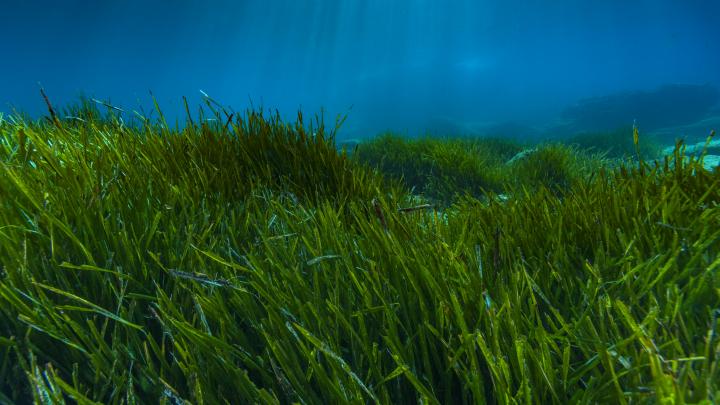
Five researchers from IMBE, Amélie Saunier, Salomé Coquin, Caroline Lecareux, Elena Ormeno and Catherine Fernandezparticipated in a ground-breaking study which highlights the presence of volatile organic compounds (VOCs) in Posidonia oceanicawhich could structure the chemical functioning of these emblematic Mediterranean ecosystems. Indeed, this underwater plant emits a wide variety of VOCBs, comparable to those found in land plants, which could play a defensive role in the face of environmental stress. What's more, these compounds could potentially contribute to atmospheric processes in the Mediterranean region.
The 105 compounds identified include isoprene, dimethyl sulphide (DMS) and acetone. Most of these emissions follow a diurnal cycle, with the exception of DMS, whose emissions are higher at night. Although not directly toxic, these compounds can interact in the atmosphere with other substances and contribute to the formation of ozone or fine particles, thereby influencing air quality. These results underline the importance of including benthic environments (such as seagrass beds) in regional and global atmospheric pollution models, which are still too focused on land-based sources. This is an important step towards a better understanding of the interactions between oceans, climate and air quality.
